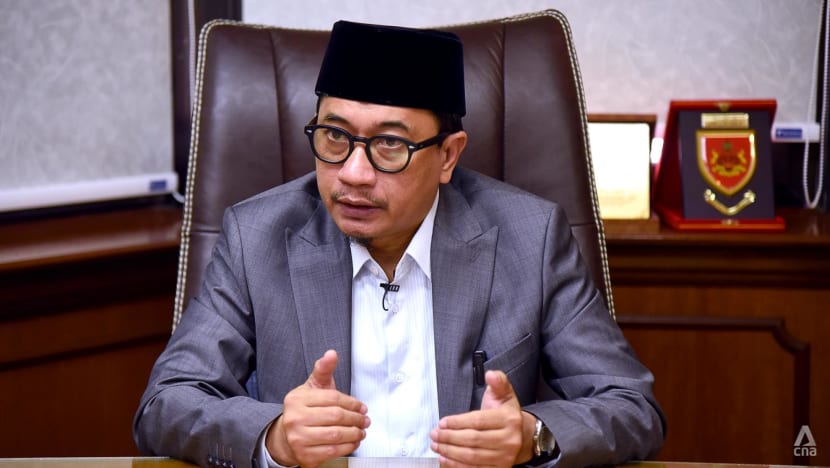Political Islam: Why the religious conservatism wave is rising in Malaysia but ebbing in Indonesia

The biggest bloc is actually PAS and PAS stands very clearly for negara Islam Malaysia, or Islamic State of Malaysia. And the second biggest bloc is actually the DAP which stands for a multiracial, hybrid state, not Islamic but not secular either. So you can see that these two blocs have nothing in common and yet they command the two biggest blocs in the Malaysian parliament
(CNA) – In a bustling central market in Kuala Terengganu, cracker seller Mdm Raqiah Abdullah flipped through pages of the Quran – the Muslim holy book – as she sat on a rickety stool.
The Quran was wrapped in a green cloth with a white circle in the middle – the flag of conservative party Parti Islam Se-Malaysia (PAS).
“We are Muslims, so it is our duty to support PAS,” said the 69-year-old.
“I think if we want to be good Muslims, in this life and the hereafter, we have to follow teachings of PAS and its leaders, like Tok Guru Hadi,” claimed Mdm Raqiah, referring to PAS president Abdul Hadi Awang, a renowned cleric who has led the party for more than two decades.
Mdm Raqiah is a lifelong hardcore supporter of the Islamist party. However, she said that among her community in Kuala Terengganu, it was only in the last five years or so that supporting PAS has become popular and mainstream.
 Mdm Raqiah Abdullah has been a hardcore Parti Islam Se-Malaysia (PAS) supporter throughout her life. (Photo: CNA/Zamzahuri Abas)
Mdm Raqiah Abdullah has been a hardcore Parti Islam Se-Malaysia (PAS) supporter throughout her life. (Photo: CNA/Zamzahuri Abas)
Observers note that this shift in support was due to problems within the country’s oldest party United Malays National Organisation (UMNO) and graft cases among its leadership, such as the 1Malaysia Development Berhad (1MDB) scandal involving former Malaysia prime minister Najib Razak.
“Previously, the rivalry between UMNO and PAS in Terengganu was fierce – there were different mosques, villages and even eateries for the supporters of each of the parties. But now, almost everyone seems to be united behind PAS, with thanks to God,” she said.
Between 1974 and 2013, the UMNO-led Barisan Nasional (BN) coalition ruled the Terengganu state government except for a stint between 1999 and 2004 when Mr Abdul Hadi served as chief minister under the Barisan Alternatif coalition.
However, since the 2018 General Election when BN lost power, PAS and its Perikatan Nasional (PN) coalition have maintained control of the Terengganu state government.
In recent years, PAS’ popularity has seemingly grown beyond its peripheral supporter base and the party has become the foremost choice for many Muslims living in the rural Malay heartland.
In an interview with CNA, PAS central committee member Muhammad Khalil Abdul Hadi outlined that the party grew in popularity recently due to pull and push factors.
Mr Muhammad Khalil, who is also the son of party president Abdul Hadi, stressed that the party’s “consistency in upholding the rights of the Malays and Muslims” may have attracted voters.

“The values of race and religion are absolutely important for the Malay Bumiputera population, and we have not shifted our stance on this since the party was formed and this is a key factor,” said the exco member of Terengganu’s information, preaching and Syariah empowerment arm in the state government.

